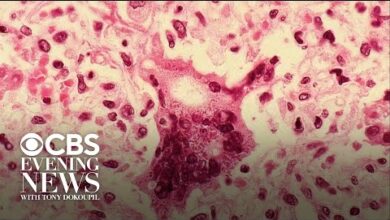Lucy Letby: everything you need to know about the Thirlwall Inquiry

The public inquiry into the crimes committed by former neonatal nurse Lucy Letby will begin tomorrow. Here are the key facts about the Thirlwall Inquiry and the case that prompted it.
Letby is serving multiple whole-life prison sentences for the murder of seven babies and the attempted murder of seven others at the Countess of Chester Hospital in 2015 and 2016.
Following her initial conviction in August 2023, then health and social care secretary Steve Barclay ordered for a public inquiry to take place into how such horrors were able to happen in the NHS.

Lady Justice Thirlwall
Court of Appeal judge Lady Justice Thirlwall was appointed in September 2023 to chair the inquiry, which is now named the Thirlwall Inquiry.
The proceedings will begin at 10am on Tuesday 10 September at Liverpool Town Hall and are expected to last around four and a half months.
The first week of the inquiry is dedicated to hearing the opening statements from the counsel to the inquiry and from legal representatives of core participants.
Then from week two, starting on Monday 16 September, the inquiry is set to begin hearing evidence related to part A of the terms of reference, before moving on to parts B and C.
Part A is focused on exploring the “experiences of the Countess of Chester Hospital and other relevant NHS services, of all the parents of the babies named in the indictment”.
Then part B will look at the conduct of those working at the hospital, run by Countess of Chester Hospital NHS Foundation Trust, in relation to Letby including how concerns about her were handled.
The final section – part C – is dedicated to investigating the wider NHS and whether the culture, management and governance structures are good enough to keep babies in hospital safe.
The core participants in the inquiry are:
- Families of children named on the indictment;
- Royal College of Paediatrics and Child Health;
- Department for Health and Social Care;
- Countess of Chester Hospital NHS Foundation Trust;
- Nursing and Midwifery Council;
- Care Quality Commission;
- NHS England;
- Antony Chambers, former chief executive of Countess of Chester Hospital;
- Ian Harvey, former medical director at Countess of Chester Hospital;
- Alison Kelly, former director of nursing at Countess of Chester Hospital;
- Sue Hodkinson, former HR director at Countess of Chester Hospital.
The inquiry has no power to determine criminal or civil liability but can highlight where failings have occurred.
On the website for the Thirwall Inquiry, it states: “The inquiry’s key objectives are to seek answers for the victims’ families and ensure lessons are learned.
“The inquiry will also examine the wider circumstances, including the response and conduct of the NHS, its staff and its regulators.”
Reporting restrictions that prevent the identification of the families of Letby’s victims and other witnesses will remain in place during the inquiry.
Lady Thirlwall will publish her findings and recommendations publicly, but is yet to decide whether this will be done over phases in multiple reports or in one report at the end of the inquiry.
Since her first trial ended, Letby has failed in two attempts to appeal her convictions, and been convicted by a different jury of an additional attempted murder charge to the six she was found guilty of originally.
Despite this, during the last few months, there have been an increasing number of media column inches written about concerns over the safety of Letby’s conviction and the evidence used in her trial.
In May 2024, the New Yorker magazine in the US published a 13,000-word investigation that questioned the legitimacy of the investigation against Letby.
Then last month, the Guardian reported that a group of neonatal and statistics experts – including nurses – had written to ministers calling for a delay or amendments to the Thirlwall Inquiry.
They said they wanted to see the inquiry consider “alternative, potentially complex causes for the deaths” of the babies other than murder by Letby.
“Possible negligent deaths that were presumed to be murders could result in an incomplete investigation of the management response to the crisis,” they wrote, according to the Guardian.
Meanwhile, veteran politician Sir David Davis, Conservative MP for Goole and Pocklington, has spoken out about his belief that Letby could be innocent.
Nursing Times has also been contacted by several people over the last few months raising similar concerns.
However, those behind the Thirlwall Inquiry have stated that it will begin as planned and will follow the existing terms of reference.
In addition, Tamlin Bolton, a solicitor representing several of the families affected by Letby’s crimes, has highlighted the importance of the inquiry to those whose babies were killed or harmed.
“Their babies were born, harmed and died in 2015 and 2016 and they have already endured many years of anguish,” she noted.
“Yet this inquiry will be the first time that they will hear evidence as to how Letby was allowed to harm as many as 18 babies before she was removed from the neonatal unit at the Countess of Chester Hospital,” said Ms Bolton.
“The facts and issues in this inquiry should also be of profound concern to every family who has used or will use NHS maternity, neonatal or paediatric services and to the wider public who need to have confidence in patient safety.
“For the families we represent, that confidence has been shattered,” said Ms Bolton, who is a senior associate solicitor at Switalskis Solicitors.
More on the Lucy Letby case:







